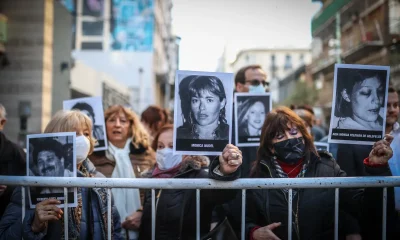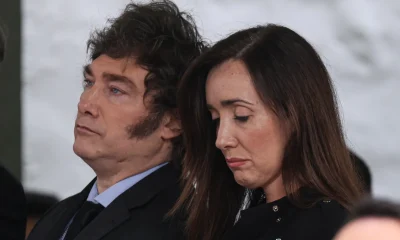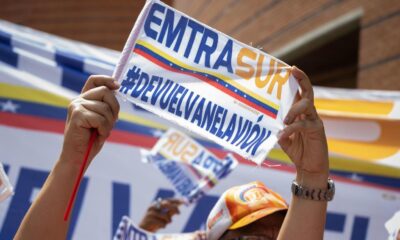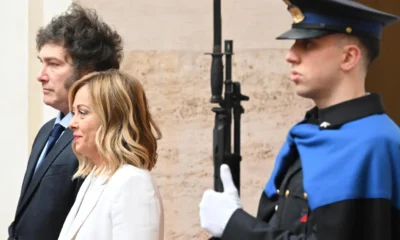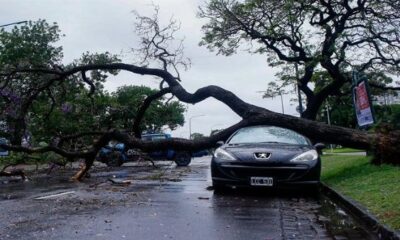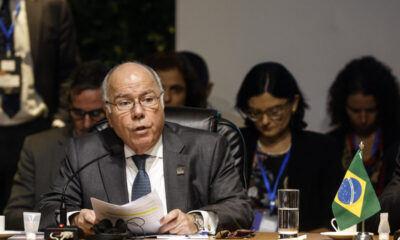International
Founder of Argentina’s anti-dictatorship ‘mothers’ dies aged 93
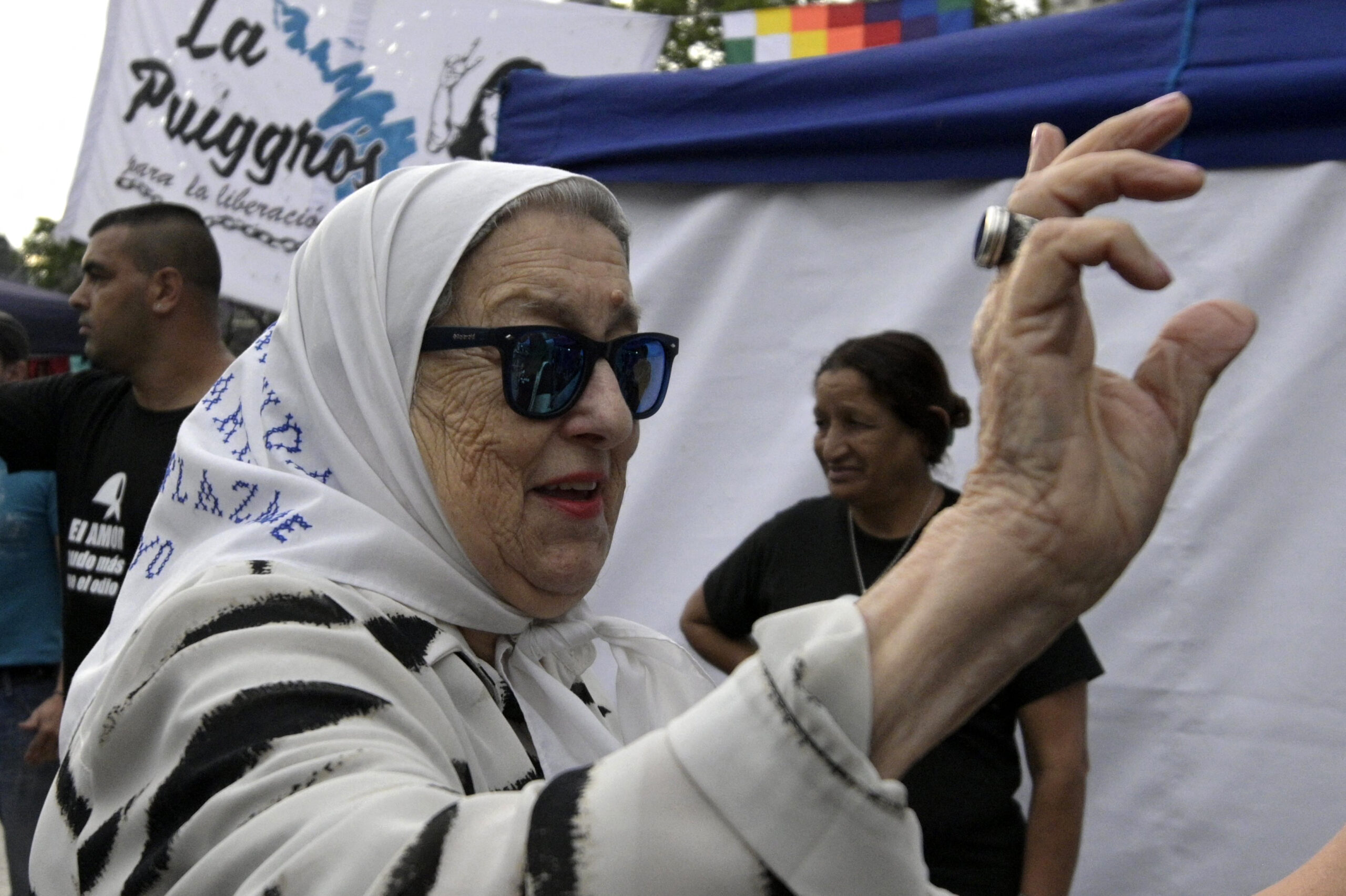
| By AFP |
Hebe de Bonafini, who led a group of Argentine women known as the Mothers of Plaza de Mayo in defying the military dictatorship and demanding the truth about their missing children, died Sunday at 93, the country’s vice-president said.
Bonafini was one of the founders of the group in 1977, uniting a group of mothers who protested in front of the presidency, desperate to know the whereabouts of tens of thousands who were abducted during the brutal 1976-1983 military regime.
For 45 years, through different governments, the women continued to meet, marching around the Plaza de Mayo in their trademark white headscarves, in an often futile search for justice.
Vice President Cristina Kirchner announced Bonafini’s death on Twitter, praising her as a “world symbol of the fight for human rights, pride of Argentina.”
Her daughter, Alejandra Bonafini, confirmed her death at a Buenos Aires hospital where she had been admitted for several days.
“These are very difficult moments of deep sadness, and we understand the love people have for Hebe. But, right now, we need to cry in private,” wrote Alejandra.
Argentina’s President Alberto Fernandez said Bonafini was a “tireless fighter for human rights,” and declared three days of national mourning.
“The government and the Argentine people recognize her as an international symbol of the search for memory, truth and justice for the 30,000 missing,” he added in a statement.
“As founder of the Mothers of Plaza de Mayo, she shone a light in the middle of the dark night of military dictatorship, and lay a path to the recovery of democracy.”
The governments of Cuba and Venezuela also paid tribute to Bonafini.
Kidnapping of leftists, babies
Some 30,000 people were abducted and presumed killed by the regime or right-wing death squads in the 1970s and 1980s for being suspected leftists.
That was compounded by the drama of widespread kidnapping of babies born to suspected dissidents being held during the right-wing dictatorship.
Many babies — offspring of now-dead dissidents — were born in captivity without the knowledge of their blood relatives and were given to military families to adopt.
Bonafini, who attended rallies in recent years in her wheelchair, was born in 1928 in Ensenada, a town 60 kilometers (37 miles) from Buenos Aires.
She was a housewife when the military seized power in 1976, ousting Isabel Peron, the wife of late president Juan Peron.
However, in 1977, her sons and daughter-in-law were kidnapped and disappeared.
“I forgot who I was the day they disappeared. I never thought of myself again,” Bonafini said recently at the launch of a photo exhibition on her life.
A few months later, she and a small group of women began protesting in front of the Casa Rosada, the pink presidential palace.
The mothers risked the same fate as their political activist children — torture, death or simply disappearing without a trace. Instead, the generals tried to laugh them off, mocking them as “madwomen.”
The women circled the Plaza de Mayo every Thursday until the Covid pandemic broke out, becoming famous worldwide for their struggle.
In later years, Bonafini became a more controversial figure, becoming a radical supporter of leftist Kirchnerism and staunch backer of former president Nestor Kirchner and his wife Cristina, the current vice president.
In 2017, she was prosecuted for alleged misappropriation of funds meant for building homes for the poor, which she said was a political act by then-President Mauricio Macri, who she considered an “enemy.” The case had not been resolved at the time of her death.
International
HRW Warns Trump’s Influence Has Weakened Human Rights in Latin America
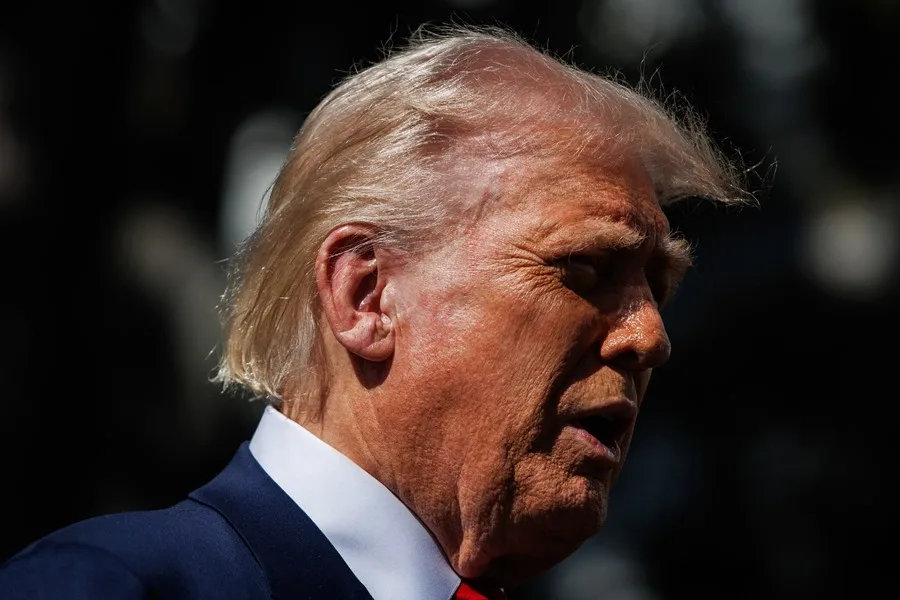
Human Rights Watch (HRW) warned that the political influence and rhetoric of U.S. President Donald Trump have contributed to a deterioration of human rights conditions across Latin America and the Caribbean. In its World Report 2026, the organization stated that several governments in the region have committed abuses against migrants and citizens, or have used U.S. policies as justification to impose harsher repressive measures.
During the first year of Trump’s new term, HRW observed that multiple countries violated the rights of foreign nationals under direct pressure from Washington. Other governments deepened security strategies based on militarization, mass detentions and excessive use of force, according to the report.
“The impact of the Trump administration has undoubtedly been negative in Latin America and the Caribbean,” said Juanita Goebertus, HRW’s Americas director. However, she emphasized that “governments in the region remain responsible for defending democracy and fundamental rights, regardless of who is in power in Washington.”
HRW also reported that the United States significantly reduced cooperation funding for human rights organizations and independent media. At the same time, countries such as El Salvador, Peru and Ecuador passed laws allowing the arbitrary closure of civil society organizations and media outlets, weakening democratic systems and institutional checks and balances.
The organization further criticized what it described as a “double standard” in U.S. foreign policy, which condemns human rights violations in Venezuela, Cuba and Nicaragua while overlooking serious abuses committed by allies such as El Salvador, Peru and Ecuador. The report also included criticism of the U.S. military attack against Venezuela in early 2026, warning that it could strengthen Nicolás Maduro’s regime and respond primarily to U.S. political and commercial interests.
International
Delcy Rodríguez Takes Control of Chavismo as Venezuela Enters a U.S.-Supervised Transition
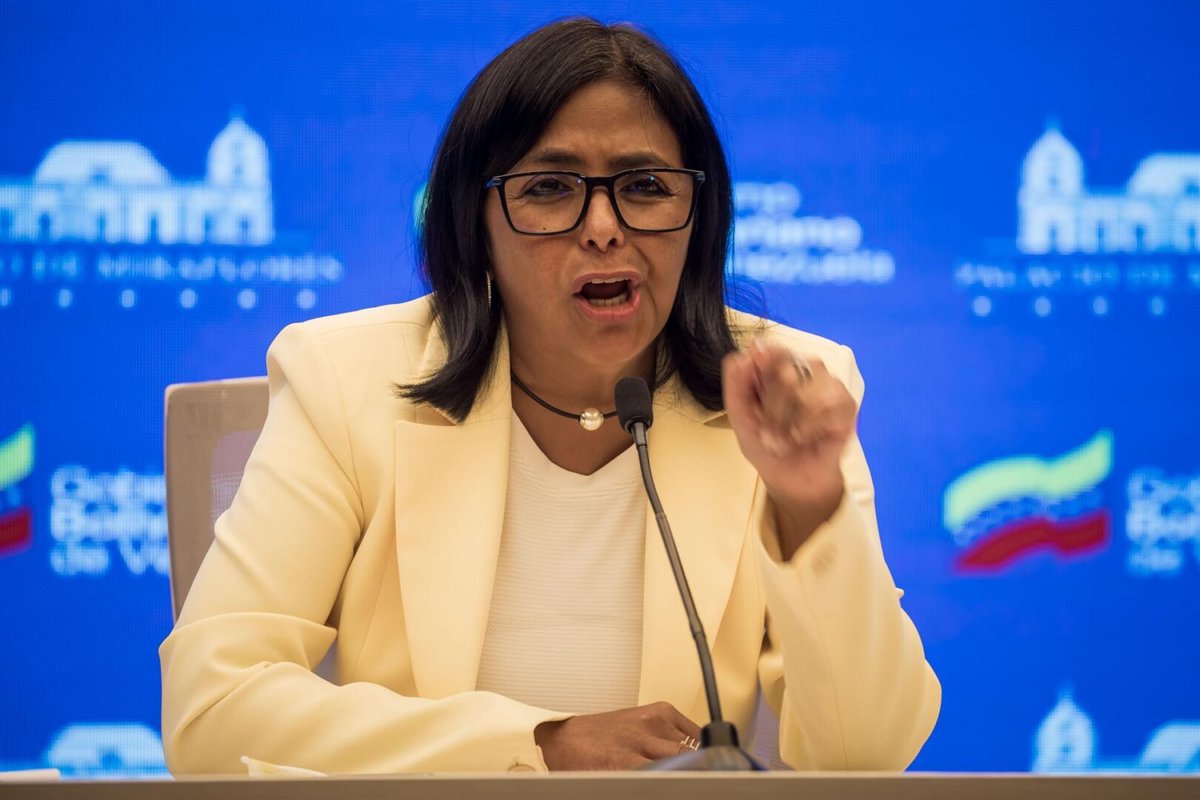
With short speeches and an academic image, Delcy Rodríguez—the woman sworn in as Venezuela’s acting president—has taken the helm of Chavismo at a critical moment, as the movement seeks to ensure its survival while the country enters a phase of change overseen by the United States, putting the foundations of the revolution to the test.
Following the military operation on January 3 that resulted in the capture of Nicolás Maduro, the Chavista leadership moved quickly to fill the power vacuum and confront the new political dynamic from within the state apparatus. In this context, Rodríguez has emerged as the central figure tasked with steering the ruling movement through an uncertain transition.
Although she has held telephone conversations with U.S. President Donald Trump and Secretary of State Marco Rubio, Rodríguez has publicly insisted on Venezuela’s independence and has sharply criticized an opposition that currently lacks meaningful influence within the political landscape.
“Enough of Washington’s orders over Venezuelan politicians. Venezuelan politics must be the one to resolve our differences and internal conflicts,” Rodríguez said on January 25, while defending her proposal for a “political dialogue” with both “like-minded” and “divergent” sectors, which she had presented two days earlier.
International
Epstein Denies Being ‘the Devil’ in Newly Released Video Interview
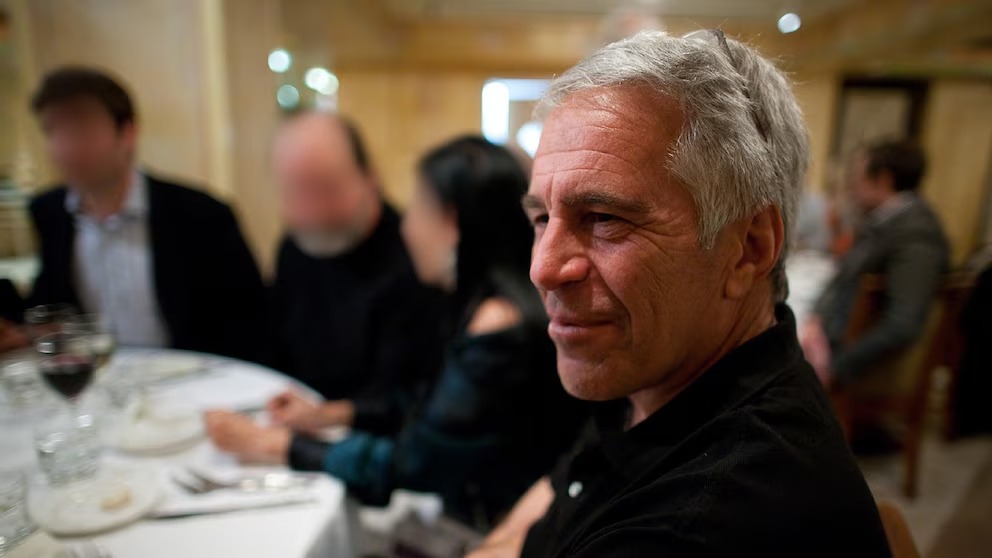
Jeffrey Epstein claims he was the least dangerous type of sex offender and denied being “the devil” in a video interview included in the latest batch of documents released over the weekend by the U.S. Department of Justice.
The roughly two-hour interview was conducted by Steve Bannon, a former adviser to U.S. President Donald Trump, and appears to have been recorded at the late financier’s New York residence on an unknown date.
Epstein died by suicide in 2019 while in jail awaiting trial on sex trafficking charges involving minors. Since December, the U.S. government has released millions of documents related to the case under transparency laws.
“Do you think you’re the devil incarnate?” Bannon asks Epstein in the video interview revealed in the latest release.
“No, but I do have a good mirror,” Epstein replies with a smile, wearing a black shirt and glasses. When pressed again, he adds, “I don’t know. Why would you say that?”
Epstein, who pleaded guilty in 2008 to soliciting a minor for prostitution, also appears to downplay the seriousness of his conviction.
He objects when Bannon refers to him as a “Level Three sexual predator,” a classification in the United States indicating a very serious threat to public safety.
“No, I’m the lowest,” Epstein says.
“But still an offender,” Bannon responds.
“Yes,” Epstein replies.
The exchange comes after Bannon asks Epstein whether he considers his wealth to be “dirty,” suggesting it was earned by advising “the worst people in the world.”
Epstein insists that he made his money legally, while acknowledging that “ethics is always a complicated issue.”
He claims he donated money to help eradicate polio in Pakistan and India, apparently in an attempt to justify the origins of his fortune.
The documents also show that Bannon maintained regular correspondence with Epstein, who offered to help the far-right political figure spread his conservative ideology in Europe.
Since Trump took office in January 2025, U.S. authorities have released millions of pages related to Epstein, along with photos and videos.
These materials have shed new light on Epstein’s ties to high-profile business executives such as Microsoft co-founder Bill Gates, celebrities including filmmaker Woody Allen, and academics and political figures, among them Trump and former President Bill Clinton.
-

 Central America5 days ago
Central America5 days agoPanama Supreme Court Strikes Down Panama Ports Concession as Unconstitutional
-

 Central America5 days ago
Central America5 days agoU.S. and Guatemala Sign Trade Deal Granting Zero Tariffs to Most Exports
-

 International1 day ago
International1 day agoMexico to Send Humanitarian Aid to Cuba Amid U.S. Threats Over Oil Shipments
-

 International1 day ago
International1 day agoSpain Seeks to Ban Social Media Access for Children Under 16
-

 International24 hours ago
International24 hours agoEpstein Denies Being ‘the Devil’ in Newly Released Video Interview
-

 International1 day ago
International1 day agoPetro Resumes Extraditions, Sends Top Criminal to U.S. Before White House Talks
-

 International24 hours ago
International24 hours agoHypothermia Linked to Most Deaths During New York’s Recent Cold Spell
-

 Central America3 days ago
Central America3 days agoCosta Rica Goes to the Polls as Voters Choose Continuity or Change
-

 International1 day ago
International1 day agoMexico Arrests Suspect in Shooting of Sinaloa Lawmakers
-

 Central America1 day ago
Central America1 day agoLaura Fernández Says She Will ‘Never’ Allow Authoritarianism in Costa Rica
-

 International1 day ago
International1 day agoNFL Investigating Emails Linking Giants Executive to Jeffrey Epstein
-

 International1 hour ago
International1 hour agoHRW Warns Trump’s Influence Has Weakened Human Rights in Latin America
-

 International1 hour ago
International1 hour agoDelcy Rodríguez Takes Control of Chavismo as Venezuela Enters a U.S.-Supervised Transition









































